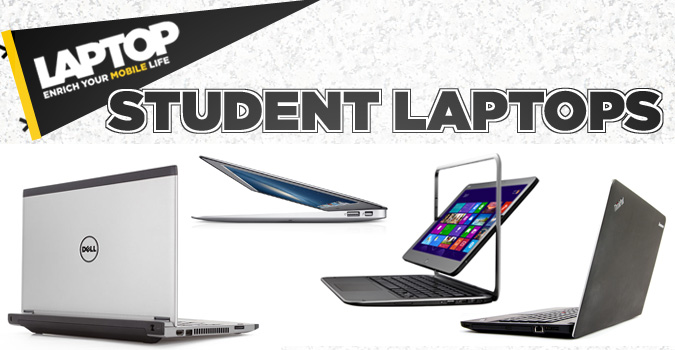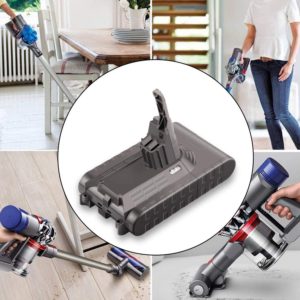Every student — from the first-grader learning to read to the graduate student writing a thesis — needs a full-fledged Mac or PC laptop. Tablets can be helpful for taking notes in class or doing some quick research, but when you want to get that term paper done, you need the real keyboard, screen and operating system that only a laptop can provide. Here are 8 tips to help you find the right student laptop for any age and course of study.
1. Pick a portable size
Although 15-inch laptops tend to be the cheapest, 11- to 14-inch models are better for students on the go because they usually weigh under 5 pounds, making them much easier to transport to and from class. If you’re shopping for a high school student who will be using the system mostly at home, a 15-incher will be fine, but even then, they’ll probably want to easily move it from room to room.

2. Get specs for the long haul, long laptop battery life
Despite what you may have heard, the CPU can make a big difference. For instance, Intel’s fourth-generation Core processor (also called Haswell) uses significantly less power than last year’s CPUs, allowing you to get more battery life on a system of the same size.
If you’re looking to save money, though, a third-generation Core processor will do the trick. Stay away from Pentium or Celeron CPUs, though, as they’re just not fast enough for intense multitasking. Laptops with AMD processors tend to be a lot cheaper, with the A series providing mainstream level performance while the E series appears mainly in low-end systems.
3. Go for at least 5.5 hours of battery life
It’s not always easy for students to plug in when they’re going to class or finishing up a paper in the campus coffee shop. So get them a notebook that lasts at least 5 hours and 30 minutes on a charge. How can you tell? Our reviews include results from our homegrown Dell Latitude D830 Laptop Battery test, which involves continuous Web surfing over Wi-Fi.
4. Consider a touch screen hybrid
Windows 8 sports an interface that works a lot better with a touch screen, so consider buying a laptop with a touch screen. Many new budget laptops come with touch screens, including the Asus VivoBook X202E, which costs under $500.
5. Consider business notebooks
Business laptops from Lenovo, Dell, HP and Acer often provide better keyboards, more durable designs and a bevy of customization options for the same price as their consumer-oriented siblings.
When configuring a business laptop online, you can often opt for an extended battery, a higher-resolution screen and your choice of storage drives. The Lenovo ThinkPad Edge E431 and Dell Latitude 3330 are both sub-$600 business laptops that provide a better user experience than similarly priced consumer offerings.


1 thought on “How to buy the best student laptops with extended life battery”
Comments are closed.